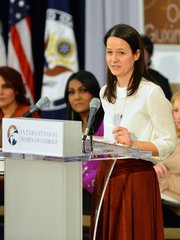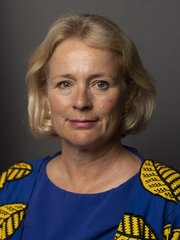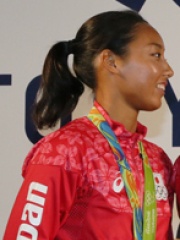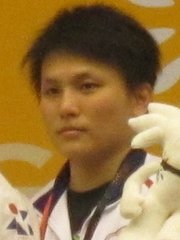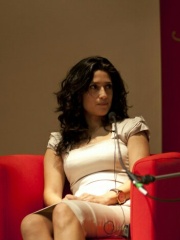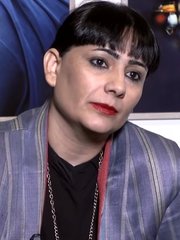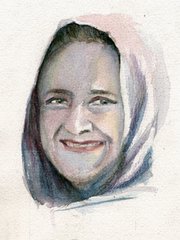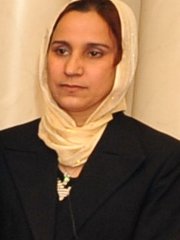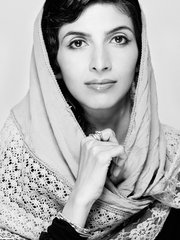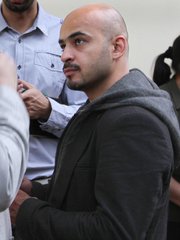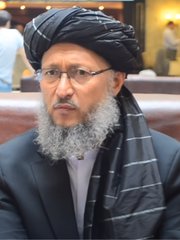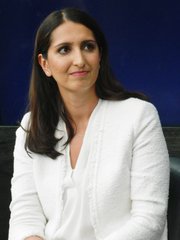Politician
Rada Akbar
 Rada Akbar
Rada Akbar
Rada Akbar (Pashto: رادا اکب; born 1988), is an Afghan-born conceptual artist, and photographer. The focus of her artwork has been to denounce the oppression of women, and ask the world to see the strength of Afghan women through her artwork and photographic portraits. She was chosen as one of the BBC's 100 most influential women of 2021. Read more on Wikipedia
Her biography is available in 14 different languages on Wikipedia. Rada Akbar is the 20,105th most popular politician, the 193rd most popular biography from Afghanistan and the 116th most popular Afghan Politician.
Rada Akbar, the politician, is most famous for her role as a member of the Afghan Parliament, where she has been an advocate for women's rights and social justice. She is recognized for her efforts to promote political participation and empowerment among Afghan women.
Memorability Metrics
Page views of Rada Akbar by language
Among Politicians
Among politicians, Rada Akbar ranks 20,106 out of 19,576. Before her are Jakub Nakládal, Žiga Pavlin, Zuzana Števulová, Nia Abdallah, Vicky Ford, Risako Mitsui, and Rob Klinkhammer. After her are Jan-Philipp Rabente, Žarko Marković, Andy Kim, Lu Ying-chi, and Bo Horvat.
Most Popular Politicians in Wikipedia
Go to all RankingsJakub Nakládal
1987 - Present
HPI: 34.12
Rank: 20,106
Žiga Pavlin
1985 - Present
HPI: 34.11
Rank: 20,107
Zuzana Števulová
1983 - Present
HPI: 34.10
Rank: 20,108
Nia Abdallah
1984 - Present
HPI: 34.09
Rank: 20,109
Vicky Ford
1967 - Present
HPI: 34.09
Rank: 20,110
Risako Mitsui
1993 - Present
HPI: 34.08
Rank: 20,111
Rob Klinkhammer
1986 - Present
HPI: 34.07
Rank: 20,112
Rada Akbar
HPI: 34.07
Rank: 20,113
Jan-Philipp Rabente
1987 - Present
HPI: 34.06
Rank: 20,114
Žarko Marković
1986 - Present
HPI: 34.05
Rank: 20,115
Andy Kim
1982 - Present
HPI: 34.04
Rank: 20,116
Lu Ying-chi
1985 - Present
HPI: 33.98
Rank: 20,117
Bo Horvat
1995 - Present
HPI: 33.97
Rank: 20,118
In Afghanistan
Among people born in Afghanistan, Rada Akbar ranks 193 out of NaN. Before her are Fatima Bhutto (1982), Faiza Darkhani (null), Qays Shayesteh (1988), Farzana Wahidy (null), Nesar Ahmad Bahave (1984), and Maryam Durani (null). After her are Mustafa Zazai (1993), Marina Golbahari (1989), Rangina Hamidi (null), Shukria Asil (2000), Soosan Firooz (null), and Roya Mahboob (null).
Others born in Afghanistan
Go to all RankingsFatima Bhutto
WRITER
1982 - Present
HPI: 36.44
Rank: 187
Faiza Darkhani
SOCIAL ACTIVIST
HPI: 35.91
Rank: 188
Qays Shayesteh
SOCCER PLAYER
1988 - Present
HPI: 35.79
Rank: 189
Farzana Wahidy
JOURNALIST
HPI: 35.72
Rank: 190
Nesar Ahmad Bahave
ATHLETE
1984 - Present
HPI: 35.68
Rank: 191
Maryam Durani
POLITICIAN
HPI: 35.66
Rank: 192
Rada Akbar
POLITICIAN
HPI: 34.07
Rank: 193
Mustafa Zazai
SOCCER PLAYER
1993 - Present
HPI: 34.04
Rank: 194
Marina Golbahari
ACTOR
1989 - Present
HPI: 34.01
Rank: 195
Rangina Hamidi
WRITER
HPI: 33.86
Rank: 196
Shukria Asil
SOCIAL ACTIVIST
2000 - Present
HPI: 33.71
Rank: 197
Soosan Firooz
ACTOR
HPI: 32.98
Rank: 198
Roya Mahboob
BUSINESSPERSON
HPI: 32.61
Rank: 199
Among Politicians In Afghanistan
Among politicians born in Afghanistan, Rada Akbar ranks 116. Before her are Obaidullah Akhund (null), Mustafa Nayyem (1981), Abdul Salam Hanafi (null), Khalil Haqqani (1966), Nasima Razmyar (1984), and Maryam Durani (null). After her are Muqadasa Ahmadzai (null).
Obaidullah Akhund
HPI: 43.59
Rank: 110
Mustafa Nayyem
1981 - Present
HPI: 43.25
Rank: 111
Abdul Salam Hanafi
HPI: 43.17
Rank: 112
Khalil Haqqani
1966 - 2024
HPI: 42.25
Rank: 113
Nasima Razmyar
1984 - Present
HPI: 37.62
Rank: 114
Maryam Durani
HPI: 35.66
Rank: 115
Rada Akbar
HPI: 34.07
Rank: 116
Muqadasa Ahmadzai
HPI: 32.27
Rank: 117



